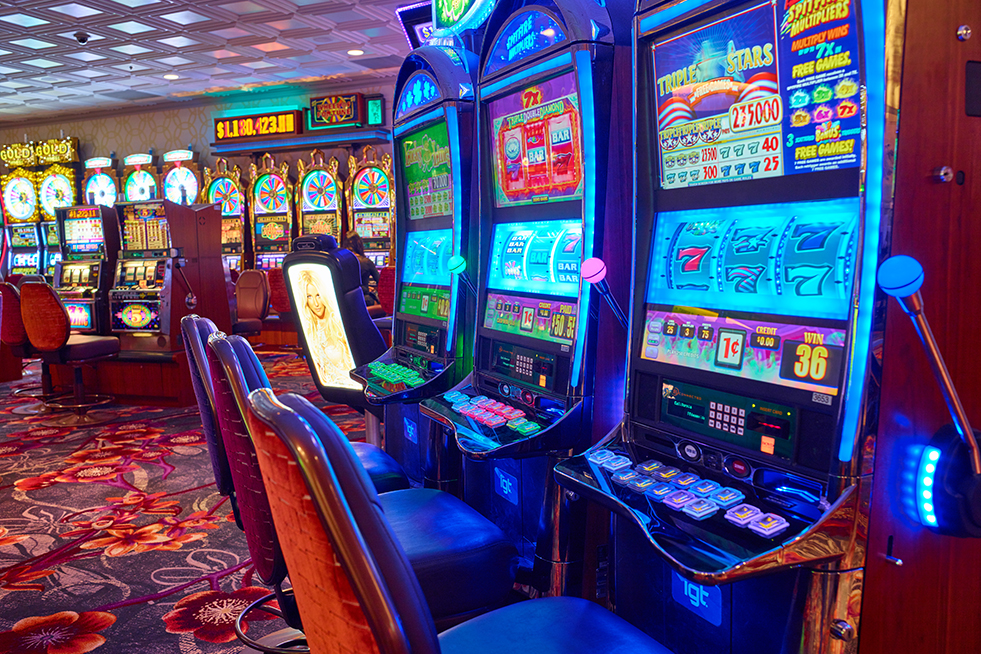The Importance of Skill in Casino Games: A Detailed Exploration
In the vibrant world of gaming, casino activities have long seized the attention of gamblers around the planet. These activities, including classic table options like poker to the spinning reels of slots, offer an captivating combination of chance and strategy. While chance undeniably plays a crucial role in shaping outcomes, the importance of expertise in many gambling activities cannot be neglected. Grasping how knowledge shapes the game can improve not only a gambler's enjoyment but also their likelihood of winning.
As we delve deeper the mechanics of casino games, it becomes apparent that some require a solid foundation of wisdom and tactics. Games like blackjack call for more than just chance; they demand critical thinking, mental insight, and calculated decision-making. In comparison, other activities, such as the roulette wheel and fruit machines, are primarily based on randomness, allowing gamblers to rely solely on random chance. This contrast raises thought-provoking questions about what genuinely drives success in the domain of gambling and how a participant's competences can tip the scales in their benefit.
Grasping Skill vs. Luck in Casino Activities
In the world of casino games, the discussion between skill and luck is a enduring one. Many games are frequently divided into two categories: those that depend predominantly on randomness, such as slot machines and roulette, and those where skill plays a significant role, like poker and 21. The difference is crucial because it influences not only gameplay strategies but also the approach players adopt when engaging with these games. Although luck can play a decisive role in the immediate, skilled players can improve their odds of winning over the extended period in skill-based games.
Skill-based games, particularly poker, necessitate players to comprehend odds, human behavior, and game theory. A seasoned poker player can read rivals, make strategic bets, and know when to fold, all of which can lead to more favorable outcomes. Conversely, in games that are purely chance-driven, no amount of skill can alter the odds. This means that although a player may win big in one session, their success may frequently be at the mercy to the vagaries of chance results rather than any strategic expertise.
In the end, both skill and luck exist together in the world of casino games, creating a dynamic environment for players. While games of chance can provide excitement and instant gratification, proficiency and strategy in skill-based games offer a richer level of engagement for those prepared to dedicate time in refining their craft. This interplay between skill and luck defines the experiences of players and shapes their relationship with the games they select to play.
The Impact of Skill on Game Outcomes
In the realm of gambling games, ability plays a crucial role in determining the results, especially in activities where strategy and decision-making are paramount. For example, in poker, competitors must examine rivals, calculate odds, and make calculated bets to maximize their chances of winning. Unlike games that rely purely on luck, such as slots or the roulette wheel, poker demands an understanding of both the rules and the behavior of other players, making skill a critical component of victory.
Additional strategy-based games, like blackjack, also underscore the significance of player skill. Knowledge of basic tactics, card counting, and when to hit or stand can dramatically influence the house edge. A proficient 21 player can reduce this edge and improve their odds of success significantly. This contrasts sharply with activities that do not allow for such tactical play, demonstrating how the level of expertise influences the potential for positive outcomes.
Additionally, even within games deemed primarily chance-driven, like craps, the decisions made by players can impact their overall success. Choosing the right bets, understanding the odds of different outcomes, and managing one's funds are essential factors that can enhance a participant's experience and results. Thus, while chance remains a factor in casino games, ability can significantly affect how efficiently participants navigate these settings, leading to more favorable results.
Strategies for Proficient Play in Casinos

To thrive in casino games, players must develop a strong comprehension of the rules and probabilities involved in various games. This foundational knowledge enables individuals to make educated choices, especially in skillful games like poker and blackjack. Getting familiar oneself with game tactics, such as card counting in 21 or identifying betting patterns in poker, can significantly enhance a player’s chances of success. Sharpening these tactics through mock games or low-risk games allows players to improve their skills without risking substantial amounts of cash at stake. Ga179
One more key strategy is budgeting. Players should establish a budget before going into the gaming establishment and stick to it faithfully. This involves deciding how much they are willing to lose and imposing restrictions on how much they will bet in every gaming session. By keeping a disciplined approach to spending, players can sustain their play and reduce the chance of significant losses. Additionally, taking time-outs can help preserve a clear head and prevent rash decisions that often lead to unfavorable outcomes.
In conclusion, managing emotions is essential in the intense environment of a gambling house. Players must be adept at controlling their emotions, particularly during periods of success or defeats streaks. Staying attentive and not letting emotions dictate gameplay can lead to more logical decisions. Methods such as deep breathing or stepping away from the gaming table during heated moments can help maintain calmness. By cultivating a balanced mindset, players can approach casino games with confidence and expertise, thereby enhancing their overall experience and outcomes.

 Laura Colon
Laura Colon